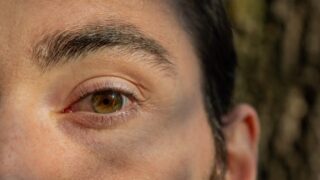
More Vision & Eye Care Articles
Navigating the Complexities of Optic Nerve Issues for Better Eye Health

Understanding optic nerve issues is essential for maintaining optimal eye health. The optic nerve serves as the crucial link between your eyes and brain, transmitting visual information that allows us to see the world. When issues arise with the optic nerve, it can lead to various visual disturbances and may significantly impact one’s quality of life. In this article, we explore common optic nerve issues, their potential causes, and current approaches to managing these conditions to support better eye health.
Common Optic Nerve Issues
Optic nerve issues can manifest in various forms, often presenting unique challenges in diagnosis and management. The most frequently encountered conditions include optic neuritis, ischemic optic neuropathy, and glaucoma.
Optic Neuritis
Optic neuritis occurs when the optic nerve becomes inflamed, potentially leading to sudden vision loss in one eye, along with pain, particularly during eye movement. This condition is often associated with multiple sclerosis, though it can also appear independently of other diseases. Corticosteroids are sometimes prescribed to manage the inflammation, but consulting a healthcare professional is crucial for proper diagnosis and treatment.
Ischemic Optic Neuropathy
Ischemic optic neuropathy results from inadequate blood flow to the optic nerve, causing sudden vision loss. This is typically seen in older adults and is often related to systemic vascular diseases. Managing underlying health conditions such as hypertension and diabetes is crucial for reducing the risk of further eye damage.
Glaucoma
Glaucoma is characterized by increased pressure within the eye that can damage the optic nerve over time, leading to vision loss. Regular eye exams are vital for early detection and management. Treatment often includes medications to lower intraocular pressure or surgical interventions to prevent progression.
Approaches to Managing Optic Nerve Issues
Addressing optic nerve issues effectively involves a comprehensive approach, often requiring collaboration between eye specialists and other healthcare professionals. Early detection and prompt treatment are key factors in preventing vision loss and preserving eye health.
Diagnosis and Monitoring
Regular eye check-ups are imperative for diagnosing optic nerve issues early. Visual field tests, optical coherence tomography (OCT), and other imaging techniques help in monitoring changes in the optic nerve and can provide critical information for effective management.
Lifestyle and Dietary Considerations
A healthy lifestyle and diet rich in nutrients that support eye health may complement medical treatments. Antioxidants, found in fruits and vegetables, along with omega-3 fatty acids, can be beneficial. For more information about supplements that might help with cognitive and visual acuity, visit our article on vitamins good for brain fog and memory.
Innovative Treatments and Research
Ongoing research is exploring novel therapies for repairing optic nerve damage, including neuroprotective agents and regenerative medicine techniques. While these treatments are still in experimental stages, they offer hope for future advancements in the care of optic nerve conditions. For an in-depth review of current medical research and guidelines, consider exploring resources like the WHO or NIH websites.
Preventative Measures and Eye Care
Practicing preventive eye care by managing systemic health conditions, avoiding smoking, maintaining a healthy weight, and wearing protective eyewear can play a significant role in preserving optic nerve function. Routine ophthalmologist consultations are key to catching early signs of optic nerve disease.
To learn more about the broader context of optic nerve health and related issues, you may find valuable insights in this Wikipedia article on health.
In conclusion, optic nerve issues, although complex, can often be managed effectively through timely intervention and lifestyle adjustments. By staying informed and proactive about eye health, individuals can minimize potential impacts and ensure the best possible outcomes. With the right support and understanding, navigating these challenges becomes more manageable.
- Optic nerve issues can affect vision and quality of life.
- Early detection through regular eye exams is crucial.
- Lifestyle changes and diet may support eye health.
- Innovative research offers hope for future treatments.
- Working with healthcare providers ensures personalized care.
What are the symptoms of optic nerve damage?
Symptoms may include vision loss in one or both eyes, visual disturbances such as flashing lights, and pain around the eye. If you suspect optic nerve damage, seek medical advice promptly.
Can optic nerve damage be reversed?
While some treatments can slow or prevent further damage, complete reversal of optic nerve damage is not currently possible. Early treatment is essential for preserving remaining vision.
How can I protect my optic nerve health?
Maintaining a balanced diet, managing systemic health conditions like diabetes and hypertension, avoiding smoking, and having regular eye exams are effective strategies to protect optic nerve health.
Are there specific vitamins beneficial for optic nerve health?
Vitamins such as antioxidants (vitamins C and E) and omega-3 fatty acids may support overall eye health. Consult with a healthcare provider to determine the best nutritional approach for you.
How is optic neuritis diagnosed?
Optic neuritis is diagnosed through a detailed eye examination and imaging studies like MRI. Testing will assess visual acuity, color vision, and a thorough evaluation of the optic nerve function.
Other Articles You May Find of Interest...
- Is Your Eyelid Drooping? Discover the Causes and Treatments for Ptosis Eye
- What Causes Eye Burning and How to Find Relief
- Effective Solutions for Relieving Teary Eyes with Eye Drops
- What Causes Swollen Eyelids and How to Treat Them?
- Is Glaucoma Affecting Your Vision? Discover the Facts
- Why Are Your Eyes Flickering and Causing Headaches?
- Effective Home Remedies to Soothe Itchy Eyes Naturally














